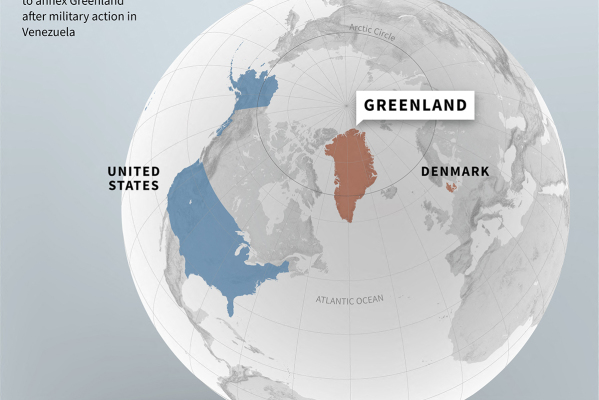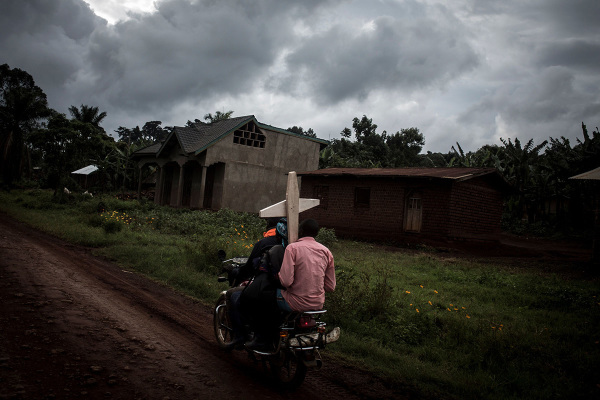FEMA to Reimburse Religious Groups for Hurricane Response
WASHINGTON – Faith communities have been serving on the frontline of disaster relief efforts, giving countless amounts in offerings, food-aid, volunteer hours, shelter, and counseling for the survivors of Hurricanes Katrina and Rita. According to a report by the Washington Post today, these church-based organizations may now be eligible to receive federal funding to assist their relief efforts and be reimbursed for the overriding costs incurred along the way.
The Federal Emergency Management Agency, a division within the U.S. Department of Homeland Security, said yesterday that it will use taxpayer money to reimburse churches and other religious organizations that opened its doors to the hurricane victims, according to the newspaper. FEMA officials said it would mark the first time the government has made large-scale payments to religious groups for helping during a domestic natural disaster.
"I believe it's appropriate for the federal government to assist the faith community because of the scale and scope of the effort and how long it's lasting," Joe Becker, senior vice president for preparedness and response with the Red Cross, was quoted as saying.
Because of the nature of their ministry, Christian groups and churches have strong networks of volunteers and supporters than can respond powerfully and efficiently to natural disasters.
The Southern Baptist Disaster Response agency, for example, counted more than 53,000 volunteer days and over 4.6 million meals served, and the Lutherans and the United Methodists each collected over $7 million specifically for the response.
In many instances, church groups work alongside FEMA and the Red Cross, preparing most of the meals served and providing shelter for refugees.
"Lutheran churches not heavily damaged by the hurricane have stepped in, providing support and shelter early in relief response," Heather L. Feltman, director for the Evangelical Lutheran Church in America's Domestic Disaster Response, said in a released statement. "Our churches in Alabama, Louisiana and Mississippi have really responded and helped in the overall relief effort."
According to Joe Conway, spokesman for Southern Baptist Disaster Relief, churches also address aspects of relief that government-funded agencies cannot.
"There are long-term relationships that are formed, and groups will be sent to give spiritual help and counseling," said Conway.
Which is why for some churches, FEMA's offer to reimburse "a wide range of costs" presents an unlikely quandary.
"Volunteer labor is just that: volunteer," said the Rev. Robert E. Reccord, president of the Southern Baptist Convention's North American Mission Board, which manages the Southern Baptist Disaster Relief.
Reccord told the Washtington Post, "We would never ask the government to pay for it."
Conway also believes the “response would be ‘no,’” but he said each local Southern Baptist Church is autonomous and can decide on their own.
“We represent the work of churches, but we ourselves are an entity. So when that kind of offer is made to churches that need it, it would certainly be acceptable,” he said. “But that’s probably not within the equation of what we’re doing.”
According to the Washington Post report, religious organizations would be eligible for payments only if they operated emergency shelters, food distribution centers or medical facilities at the request of state or local governments in the three states that have declared emergencies – Louisiana, Mississippi and Alabama. In those areas, "a wide range of costs would be available for reimbursement, including labor costs incurred in excess of normal operations, rent for the facility and delivery of essential needs like food and water," FEMA spokesman Eugene Kinerney said in an e-mail to the Washington Post.
It is estimated that religious groups and volunteers operated facilities that took in some 500,000 people at Hurricane Katrina's wake.
Despite these figures, some groups, such as Americans United for Separation of Church and State, believe government funds should not be made available to faith-based organizations.
"We've never complained about using a religious organization as a distribution point for food or clothing or anything else,” Barry Lynn, executive director of the AUSC, told Washington Post. But "direct cash reimbursements would be unprecedented."
He added that while he accepts the co-work of government and religious groups in a major disaster the government should not “pay for their good works.”
Conway agrees, saying that most volunteers give their time and money “because of their love and relationship with Jesus Christ.”
"They are compelled by God's call to help their fellow man and they are motivated by the call of Jesus Christ and the gospel," he said to the Christian Post.
And even without the government grants, church groups are planning out a long-term response.
"I am proud to say that we are really here for the long haul," the Rev. Mark Hanson, presiding Bishop of the ELCA, said to a group of Lutheran relief workers. "I am grateful for (Lutherans) who are pouring out their generosity with gifts small and large, which becomes the fuel for the capacity to help people respond over the long haul."
Said Conway, “This will be our largest response in history. It will be a long duration response, and our rebuilding efforts will go on for years.”
The FEMA policy was first outlined in a Sept. 9 internal memorandum, titled "Eligible Costs for Emergency Sheltering Declarations." Under the policy, religious groups, like secular nonprofit groups, will be required to document their costs and file for reimbursement from state and local emergency management agencies, which will then seek funds from FEMA.





















